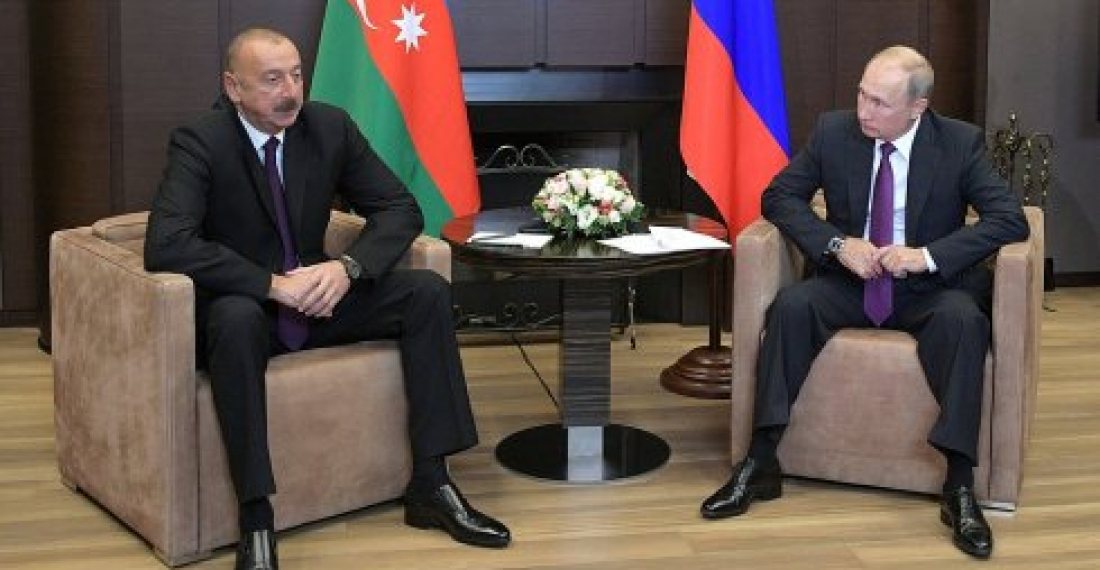Russian president Vladmir Putin welcomed his Azerbaijani counterpart Ilham Aliyev in Sochi on Saturday for discussions, after which a number of agreements on economic co-operation were also signed.The talks centred on various issues of the bilateral agenda and prospects for the development of trade and economic cooperation, according to the Kremlin website. The two leaders also had exchange of views on the current international and regional problems. It is understood that the discussions also centred on the issue of the resolution of the Nagorno-Karabakh conflict.
Following the talks, Putin and Aliyev signed the Joint Statement on Priority Directions of Economic Cooperation between Russia and Azerbaijan. A package of intergovernmental and commercial documents was also signed during the visit.
Addressing a press conference after the talks, President Aliyev said Azerbaijan had already bought more that USD 5 billion worth of military equipment from Russia, and continues to do so. TASS news agency quoted the Azerbaijani leader as saying that "Azerbaijan continues to modernize its Armed Forces, and Russia is the world's most important producer and supplier of military products to international markets." According to TASS, Aliyev said that Azerbaijan also purchases weapons and military equipment from Belarus, Israel, Pakistan, Turkey, and the Czech Republic. Part of the weapons purchased, including from Russia, was demonstrated at a military parade in June dedicated to the 100th anniversary of the creation of the Azerbaijani Armed Forces.
Referring to the Nagorno-Karabakh conflict, TASS quoted the Russian president as saying that "as a Minsk Group co-chair, Russia will continue to provide every possible assistance to the peaceful settlement of [the Nagorno-Karabakh] conflict".
source: commonspace.eu with agencies
photo: President Putin of Russia and president Aliyev of Azerbaijan held talks in Sochi on 1 September 2018. (picture courtesy of the press service of the president of Russia






